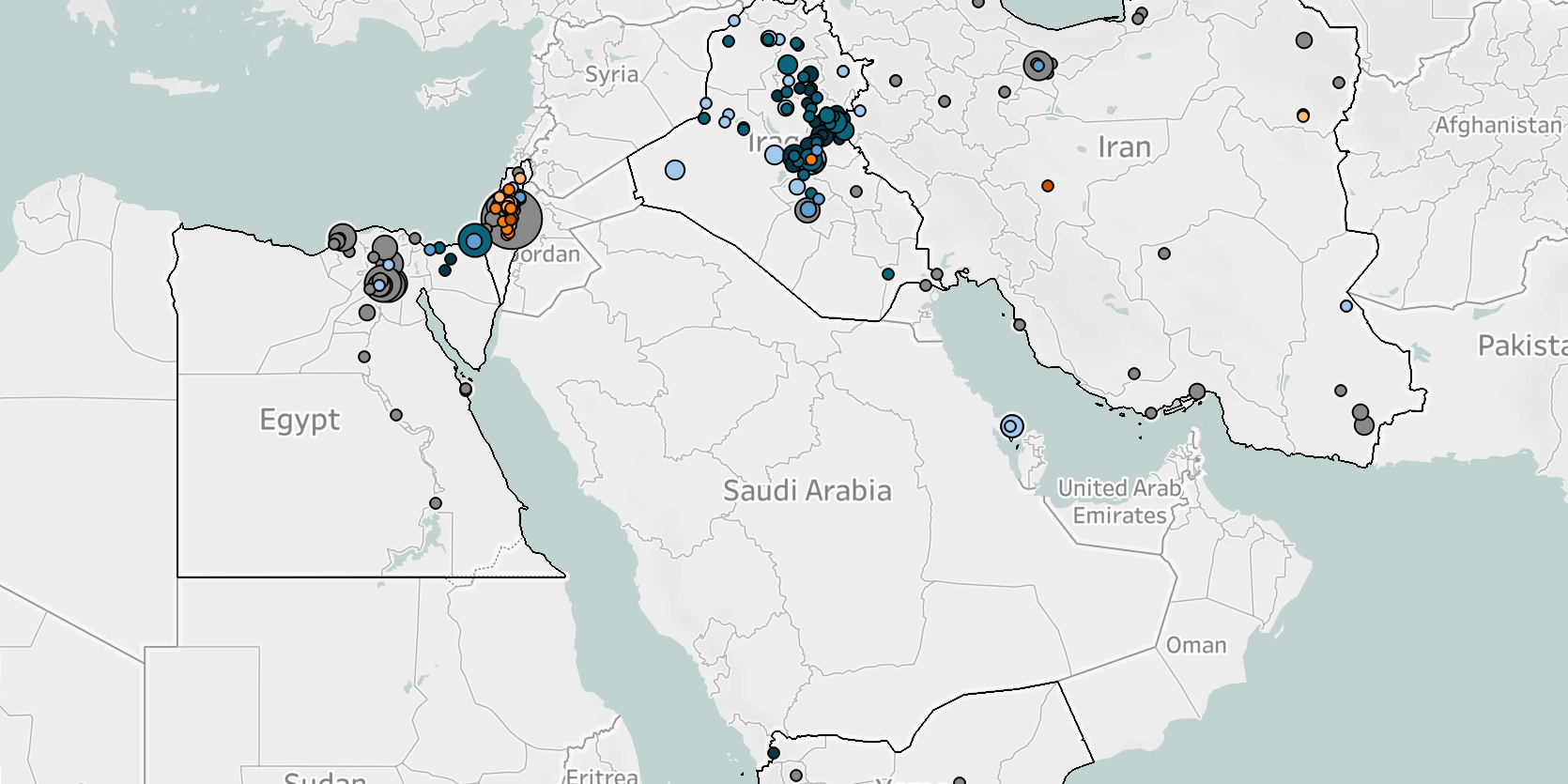Last week in the Middle East and North Africa, restrictions on religious practice and morality-related events were reported. In Bahrain, upcoming Shiite Muslim celebrations of Muharram prompted increased restrictions on religious practice in Jaw Prison. In Palestine, the Hamas-controlled Ministry of Health in Gaza investigated a yoga class over accusations that it was ‘un-Islamic.’ While, in Israel and Yemen, artists were targeted for their expression. In Israel, an artist was summoned by the police for burning a paper with the name ‘God of Israel’ during an art show. In Yemen, pro-Houthi authorities launched an arrest campaign targeting artists who took part in Yemeni Song Day on 1 July, and confiscated hundreds of photos of women’s clothes used in storefronts. In Iran, several arrests targeting ‘immoral’ behavior were reported.
In Bahrain, activists shared testimonies from prisoners in Jaw Prison on social media last week. They accuse the prison administration of taking “precursory measures” to prevent Shiite prisoners from carrying out religious ceremonies during the upcoming Islamic holy month of Muharram (Twitter, 9 July 2021). In previous years, reports of Bahraini state repression against Shiite Muslims have increased during Muharram (ADHRB, 5 October 2020). Shiite Muslims commemorate the martyrdom of Imam Hussein, one of the most foundational events of Shiite history, on the tenth day of Muharram, and thus the month often sees heightened levels of Shiite activism.
Meanwhile, in Palestine, the Hamas-controlled Ministry of Health in Gaza launched an investigation last week into the participation of ambulance personnel in a yoga session. The ministry launched the investigation over accusations that the session was “un-Islamic” and included “forbidden Buddhist rituals” (Al-Monitor, 4 July 2021). The event was organized by a yoga club in Gaza city, and sponsored by the Indian Embassy in Ramallah, to help health sector workers deal with emotional distress from the latest round of hostilities between Israel and Hamas last May. Last week in Israel, police forces summoned an artist for questioning after he burned a piece of paper with the words ‘God of Israel’ during an art show in Ein Harod valley. Reports suggest that the Lehava Jewish Organisation and religious Knesset members pressured Israeli police to hold the artist accountable and to issue him a summons order (Behadrei Haredim, 7 July 2021).
In Iran, the government continued to prosecute Iranians in breach of strict morality regulations and laws last week. Iranian police arrested three youths in South Khorasan province last week for “publishing immoral and vulgar content” on social media (HRANA, 6 July 2021). Police also arrested the manager of a roadside inn (caravanserai) in the city of Delijan, Markazi province, for violating bans on gender-mixing. His arrest follows the circulation of a video showing male and female tourists playing water games together there (IRNA, 6 July 2021).
In Yemen, demonstrators gathered in Rayma and Sanaa cities last week, to denounce Saudi Arabia’s decision to restrict the Islamic Hajj (yearly pilgrimage to Mecca) to people already residing within the country. In announcing the decision, the Saudi government cited concerns related to the ongoing coronavirus pandemic (Ansar Allah 9 July 2021). This will be the second consecutive year in which the Hajj has been restricted to Saudi residents. Meanwhile, pro-Houthi forces launched a campaign last week to arrest artists who joined in the celebrations associated with Yemeni Song Day (Yemen Voice, 5 July 2021). In another act of moral and religious policing, pro-Houthi authorities allegedly confiscated 750 pictures of women’s clothes that had been displayed in clothing stores, centers, and malls. Authorities describe the pictures as “immoral” (Al Mashhad Al Yemeni, 5 July 2021).
In Iraq, the office of Shiite cleric Muqtada Al Sadr issued a statement on 5 July, banning an affiliated cleric from wearing the clerical uniform for a year, and closing his social media account. This took place in response to his repeated expression of personal opinions on unspecified sensitive issues, which allegedly spurred tensions (Baghdad Today, 5 July 2021). Meanwhile, Shiite religious authority (marjaiyya) Mohamed Mahdi Al Khalsi issued a statement on 7 July, calling for a boycott of the upcoming parliamentary elections to be held on 10 October (Baghdad Today, 7 July 2021). In calling for the boycott, Al Khalsi called the elections a sham and blamed Zionism for all the country’s problems (Baghdad Today, 7 July 2021. The early elections, which are being held a year before the official end of the parliamentary term, came as a response to the demands of a long-running nationwide protest movement that called for the overthrow of the government. The protest movement, which started on 1 October 2019, initially focused on corruption and unemployment before eventually supporting calls for the overthrow of the Iraqi regime (BBC, 2 December 2019). Despite this, activists from the protest movement are also expected to call for a boycott due to an allegedly “inhospitable pre-electoral environment” (Brookings, 24 June 2021).
All ACLED-Religion pilot data are available for download through the ACLED-Religion export tool. Explore the latest data with the interactive ACLED-Religion dashboard.






